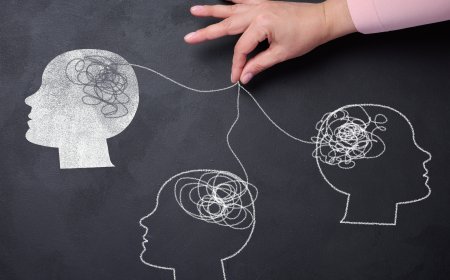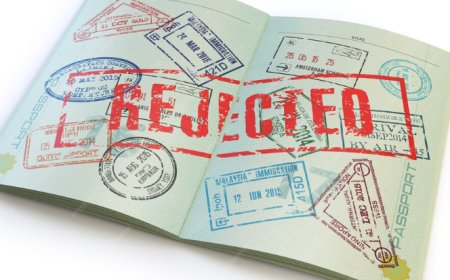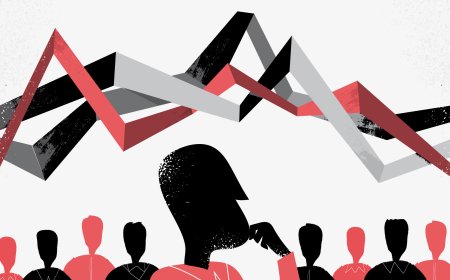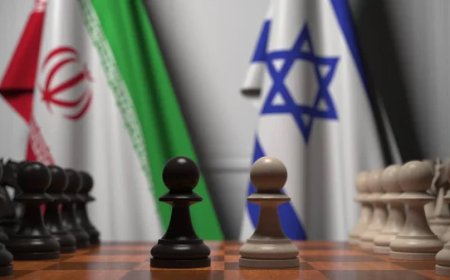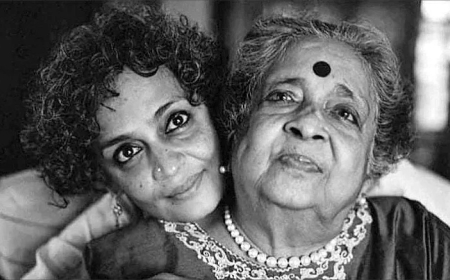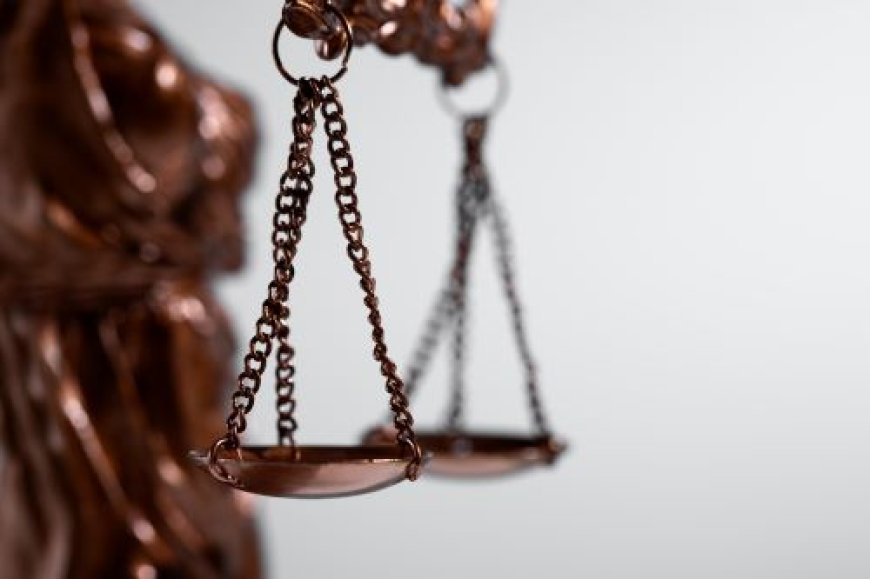Ghost in the Machine
Jinns were once blamed for missing utensils and mysterious fevers. In today’s statecraft, they seem to be responsible for everything from election fraud to economic collapse. No one ever is to blame.
There is a quaint old Bengali proverb -- shorbange betha, oshudh debo kotha? (Pain in all parts of the body, where do I apply the medicine?). Once meant to reflect individual suffering, it now serves as a national diagnosis for much of the Third World countries like Bangladesh.
Indeed, many of these countries -- blessed with history, cursed with politics -- have become walking case studies of institutional organ failure. Executive, legislative, judicial, and now the press -- all four limbs of the state appear to be afflicted by a mysterious virus: chronic dysfunction, selective amnesia, and occasional delusions of grandeur.
The common man -- the proverbial citizen -- once turned to these organs for relief. First to the government, then to the parliament, then to the courts, and finally, as a last refuge, to the media. But what happens when all four fail? When the doctor becomes the disease? When the courtroom becomes a circus and the media a puppet show? When even the last candle in the room flickers and dies, does one not begin to believe in ghosts?
It appears, in fact, that ghosts -- or jinns -- are now running the show. In villages, jinns were once blamed for missing utensils and mysterious fevers. In today’s statecraft, they seem to be blamed for everything from election fraud to economic collapse. The whole country is possessed, it seems. But since they exist beyond the visible spectrum, there is no need to indict anyone. Case closed.
And with that clever sleight of hand, the system survives -- not because it works, but because it has perfected the art of escape. Just as Houdini wriggled out of chains, these institutions wriggle out of responsibility. “Who is to blame?” is a question no one dares to answer anymore. It floats in the air, like a mosquito nobody swats.
Meanwhile, the law claims to see everyone equally. Blindfolded Lady Justice stands tall in courtrooms, her scales hanging with dignity -- until, of course, someone whispers on the phone. Then, the blindfold is lifted discreetly, weighed against the caller’s political weight or financial offering, and justice is reinterpreted accordingly. That famous phrase -- “All are equal before the law” -- has aged like unrefrigerated milk in the tropics. Now, the more accurate slogan might be (with apologies to George Orwell): “All are equal, but some are more acquitted than others.”
Take the curious case of the revolving saints and sinners. In the eyes of the law, someone may be declared a criminal today, paraded before cameras, and sentenced with pomp. And yet, give it a few years -- an election or two, a realignment of power, and suddenly the same criminal emerges, not only exonerated, but glorified. Their sins are airbrushed from history, their misdeeds transformed into patriotic sacrifices, and their portraits now hang in committee rooms and charity galas. They return, garlanded with flowers, welcomed by party workers and television anchors alike. It’s less jurisprudence and more magic show. And all the while, the poor soul wrongly jailed for twelve years for a crime he never committed -- he cries in the courtroom: “Give me back those twelve years!” But who listens? The judge is on leave. The system is in repair. The jinns are busy.
We often hear that justice delayed is justice denied. But in some countries, justice isn’t just delayed -- it’s outsourced to myth, folklore, and convenient ignorance. In fact, it's almost admirable how every institution has perfected plausible deniability. The police cannot identify the criminal. The court cannot determine the truth. The politician cannot remember the details. The journalist cannot publish the story. And the people? Well, they have stopped asking questions altogether. When the theatre of justice runs this long, the audience eventually leaves.
One might think that such miscarriages of justice are rare, unfortunate errors. But in the grand courtroom of the developing countries, they are standard operating procedure. Wrongful convictions are not tragedies; they are traditions. They are shrugged off with the same casual indifference as potholes in the road or power cuts in summer. “What can be done?” becomes the national refrain. And yet, a country where there is no mechanism -- no will -- to compensate the wrongfully imprisoned is a country that is not simply unjust. It is one that is comfortable with its injustice.
In this carnival of confusion, even the educated are lost. The middle-class mother watching television doesn’t know whether the accused on screen is a criminal or a martyr. The university graduate scrolling through headlines cannot tell fact from fabrication. One news channel says the man is a traitor; the other says he’s a hero. Facebook thinks he’s a freedom fighter. YouTube has five theories. The judiciary says: “Case pending.” The people say: “Who knows anymore?” Truth becomes elastic. Justice becomes optional. Facts become decorative.
And amid this epistemological meltdown, a new national sport emerges: blame-shifting. When banks are robbed, when people are murdered in daylight, when fighter jet explode on school campus and children die --no one is responsible. The files disappear. The suspects evaporate. The inquiry committees are formed, dissolved, and forgotten like bad dreams. And then the official press release arrives: “Unknown miscreants did it.” Sometimes, the miscreants are “unidentified youth.” Other times, “anti-state actors.” And increasingly, one suspects, they are jinn.
Once upon a time, criminals were at least ashamed. Today, they run press conferences. They own television stations, run charity foundations, and post about transparency. They look into the camera and promise reform. And the people -- tired, traumatized, and disillusioned -- might even believe them. Because what choice do they have?
Nowhere is this abdication of responsibility more visible than in politics. Political leaders, once accused of crimes, now deliver lectures on integrity. Critics of yesterday become champions of today. Meanwhile, the real victims -- families of the disappeared, the displaced, the falsely accused -- fade into the footnotes. Justice, it seems, has a short attention span. It forgets names but remembers affiliations. It loses interest quickly, especially when the headlines move on.
And what of the media -- the so-called “Fourth Estate”? It was once described as the watchdog of democracy. Today it resembles a lapdog. Or worse -- a trained parrot. In some cases, the media has not simply failed to hold power accountable; it has become a willing accomplice in rewriting reality. Truth is not reported; it is curated. Scandals are not exposed; they are monetized. Propaganda is packaged as patriotism. Journalists who refuse to play along are silenced, sued, jailed, or “disappeared.” The rest learn quickly to fall in line -- or fall from grace.
The real danger is not that the people are misinformed. It is that they are no longer sure if being informed makes any difference. What good is knowing the truth, when truth has no consequence? In such a system, cynicism is not a symptom -- it is a survival mechanism.
In such a climate, one might ask: are there no crimes anymore? If every accused walks free eventually, does that mean the crimes never occurred? If every allegation is retracted, every trial is mistried, every verdict reversed -- was there ever an original sin? Bombs have gone off. People have died. Billions have been looted. So who did it? Were the jinn working overtime that year? Are we to believe that crimes happen, but criminals don’t exist? That corruption has a body count, but no perpetrator?
This is where the absurd becomes the norm. We live in countries where institutions are treated like fiction, where rules are meant to be bent, and where memory is a burden. A place where the phrase “rule of law” is printed on banners and banners only. Where the Constitution is cited on national days and ignored on normal ones. Where morality is not a compass but a costume.
Perhaps hope, too, is a kind of madness. But what else is there? When all four pillars of the state crumble, when truth becomes negotiable and justice seasonal -- hope may be the last insanity we are allowed.
H. M. Nazmul Alam is an Academic, Journalist, and Political Analyst based in Dhaka, Bangladesh. He can be reached at [email protected]
What's Your Reaction?









